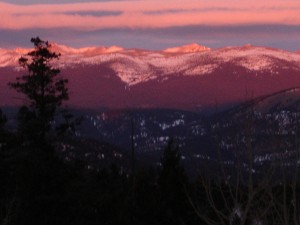These late eclipses in the sun and moon portend no good to us: though the wisdom of nature can reason it thus and thus, yet nature finds itself scourged by the sequent effects:
King Lear , Act 1, Scene 1
The Elizabethans may have thought that eclipses foretold chaos and the overturning of the natural order of things but to me they are an experience of ethereal beauty and anticipation.
The anticipation at the prospect of seeing one from your own backyard is immense (and not a little anxiety provoking when people and telescopes are also involved). Cloudy skies in Colorado are ‘unusual’ but of course they happen at inopportune moments, like last Sunday. But the clouds parted to give glimpses of the eclipse and the watchers felt rewarded (even the most hardened scientists let out spontaneous gasps of wonder).
Is it my imagination or were there more opportunities in childhood to be overcome with awe and wonder at the heavenly bodies, carpets of stars across the dark, constellations suddenly becoming identifiable? Is it one of those rites of passage, the first time you notice something immense and wonderful that makes you feel minute and insignificant?
Dark skies seem increasingly unusual in today’s world so the opportunities to be transported by the sight of a star-filled night can be rare – perhaps it makes it all the more stunning when we see it.
Journal Prompt: Write about times when you have really noticed the night sky. Was there a ‘first time’? A particular time?
Have you ever seen an eclipse or other astronomical event? What was it like? How did you respond?

And finally: Poets, from Shelley to Hughes, love the night skies, especially the moon (moon poems here) – have you got a favourite poem or quotation on this subject?
